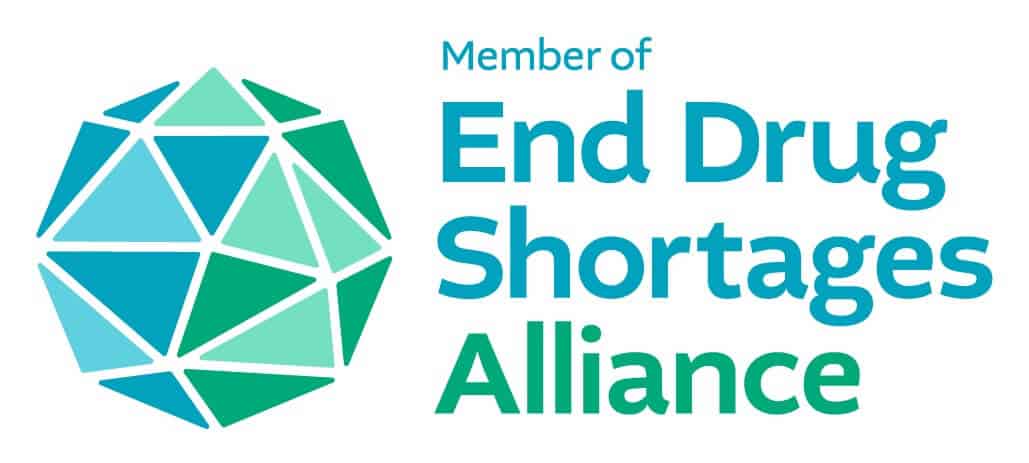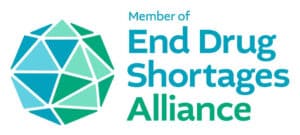Hospitals are under significant pressure. More resources are going toward caring for COVID-19 and other emergent cases while revenue is suffering with the postponement and cancellation of elective procedures. Budgets are strained, forcing hospitals to lay off staff or delay the hiring of new employees even as staff workload increases. Unfortunately, relief isn’t likely to come soon. As states are reopening, most are experiencing surges in positive cases and hospitalizations. A second wave of the novel coronavirus is still anticipated for the fall, right around when flu season will begin picking up steam. It’s potentially a perfect storm that would place further strain on our embattled health-systems. This means hospital pharmacies need to work on improving their drug shortage management strategy.
There are many steps hospitals will need to take if they hope to effectively weather this prolonged period of turmoil and disruption. Perhaps one of the most significant is performing an assessment of those processes considered to be the “status quo” and determining whether complacency is getting in the way of achieving operational improvements. Now is the time to make significant changes that advance healthcare rather than continuing to rely on approaches that are antiquated and inefficient. As Mayo Clinic Chief Executive Officer Gianrico Farrugia, MD, wrote in Fortune, “The pandemic’s disruptive force has spurred transformational change in our organization, as well as in many others. We must actively resist a return to the old way of doing things, maintain the improvements we’ve made, and continue to invest in research and strategic collaborations that will produce a health care system that serves everyone better.”
This mentality should extend to how hospital pharmacies approach their drug shortage management. This is the time to embrace technology as a way to eliminate manual processes, better organize systems, and drive efficiencies. There’s never been a greater need for technology-enabled healthcare to help us better respond to the challenges of today and prepare for what’s looming tomorrow. Drug shortage management efforts have to be faster, smarter, and more efficient to ensure that delivery of care during these demanding times isn’t compromised. Here are 8 ways technology can help hospitals improve their drug shortage management:
Reap the Benefits of Automation
For many hospitals, their entire drug shortage management process is manual. From data collection and analysis to searching for product availability, pharmacy employees spend hours upon hours completing these and other tasks. How would you benefit by eliminating manual processes and then changing your workflow from being reactive to becoming proactive? How would that impact operations and employee satisfaction? The right technology can help you begin to automate drug shortage management workflows. The trickledown benefits will be significant.
Reposition Valuable Resources
The more you rely on your technology to automate once-manual processes and improve staff efficiency with completing remaining manual processes, the less staff you will need to assign to drug shortage management tasks. At a time when staffing is strained, as previously noted, this can be a game-changer. Depending upon your staffing situation, you may be able to reassign team members to other critical pharmacy tasks, return to a more typical schedule that scales pharmacy staffing back closer to pre-pandemic levels, and reduce reliance on overtime. Even before the pandemic, drug shortages were costing U.S. hospitals at least $359 million a year on labor costs, according to a Vizient study.
Improve Efficiency
Improving drug shortage management with technology can greatly increase efficiency and productivity. Eliminated are laborious, time-consuming processes of manual data entry into spreadsheets, records research, and compilation of information, to name a few. Staff can gain instant visibility into medications on hand, locations of medications, speed of usage, trending, and more. The results: tasks are completed faster, decisions are made with greater confidence thanks to supporting data, data entry and compilation errors are greatly reduced, and more opportunities for improvements are identified. Furthermore, an investment in technology that fuels efficiency can enhance staff satisfaction since employees will feel like their time and skills (beyond manual data entry and retrieval) are valued. More satisfied and engaged staff are proven to be more productive and less likely to experience burnout.
Save Money
If you needed to invest in more staff and/or overtime to account for the increased workload associated with responding to COVID-19 demands, drug shortage management technology can help you bring these staffing levels and their expenses under control. Technology can also help you make more proactive medication purchasing decisions, permitting you to maximize savings associated with bulk purchasing, competitive shopping and pricing, avoiding reliance on expensive rushed shipping, and other intelligent buying strategies. Once you invest in the technology, the savings associated with leaner staffing and smarter purchasing accumulates and should quickly cover the cost of the solution.
Situational Awareness
Drug shortage management technology can inform you of potential shortages looming on the horizon, both internal and external. When staff are alerted to decreasing levels of medications in stock, including those involved in caring for COVID-19 patients, they can act to replenish stock and/or begin to execute a response plan to ration medications or pursue alternatives. When staff learn of potential disruptions in the supply of medications, they can take similar actions as well as further engage in discussions with wholesalers and distributors about trends and potential solutions.
Make Decisions Faster
As the American Society of Health-System Pharmacists notes, hospitals were experiencing shortages of key injectable drugs prior to the pandemic. Now, unprecedented demand due to the large numbers of critically ill patients with the novel coronavirus is serving to further worsen shortages in medications such as sedative, analgesics, and paralytics. As surges bring more patients to hospitals, pharmacy staff may find themselves under the gun to make a wide range of decisions in areas including drug allocation, purchasing and rationing. A drug shortage management system can provide the information needed to help staff make faster, data-driven, and educated decisions more likely to achieve their desired results.
Enhance Communication and Mitigation Strategies
Drug shortage technology that includes components focused on supporting communication (e.g., a centralized communications center) can better ensure key stakeholders throughout the health system are current on existing and potentially future challenges. With such knowledge comes improvements in the coordination of effective use and conservation of drugs in short supply. In addition, technology can provide reports to stakeholders on action follow-through and progress made concerning preservation and synchronization efforts.
Sourcing and Procurement Support
Diversity in one’s supply base (i.e., multi-vendor sourcing) is beneficial as it provides a hospital with more options to purchase the medications needed and at more competitive prices. This is proving especially helpful during this time when there is so much disruption to the supply chain and significant developments leading to rapid swings in number of cases and case types. However, communicating and coordinating with and purchasing from multiple vendors is one of the more time-consuming and inefficient tasks pharmacy staff are expected to complete. Drug shortage technology with a procurement center feature can eliminate the need for engaging with multiple vendors by providing a consolidated view of options that streamlines educated decision-making on purchasing.
Adding Drug Shortage Management Technology
If it sounds like your hospital would benefit from drug shortage management technology, consider scheduling a demo of OrbitalRX. It is the only data-unifying platform that proactively manages drug shortages through predictive analysis and real-time situational awareness in a pharmacy-focused workflow. OrbitalRX is a solution that will help you better navigate your hospital through the clinical, operational, and business impacts of the COVID-19 outbreak.







 Over the past few weeks I have had the opportunity to review and consider many of the points outlined in the recent
Over the past few weeks I have had the opportunity to review and consider many of the points outlined in the recent 